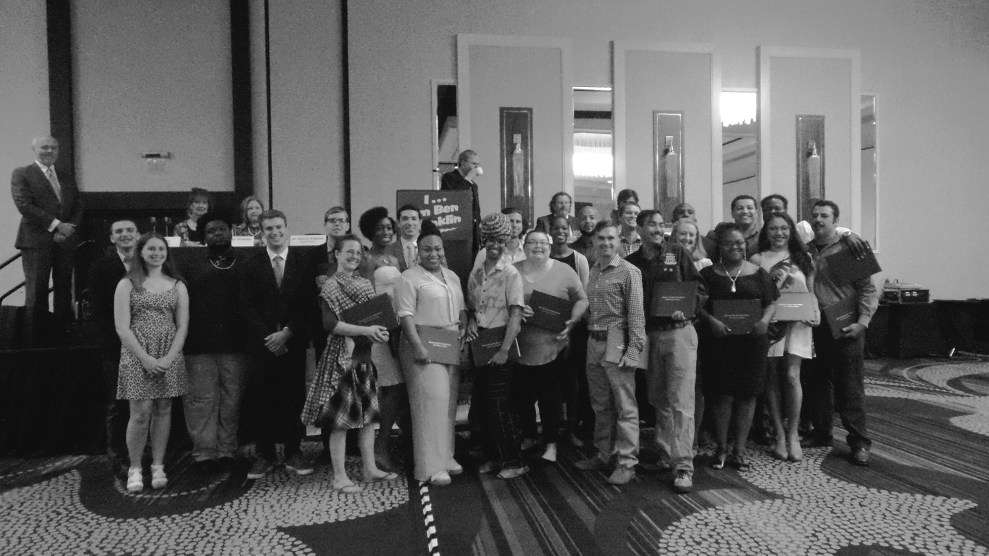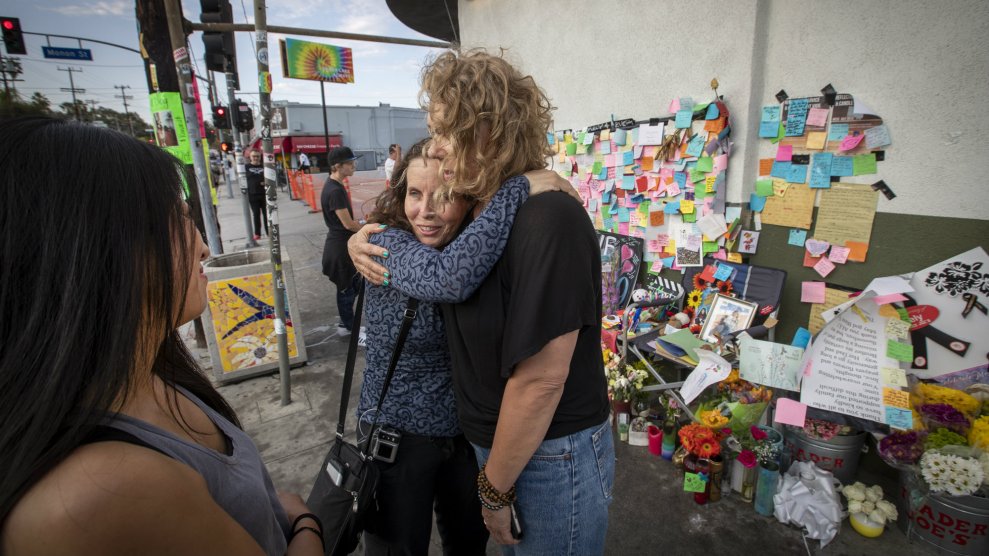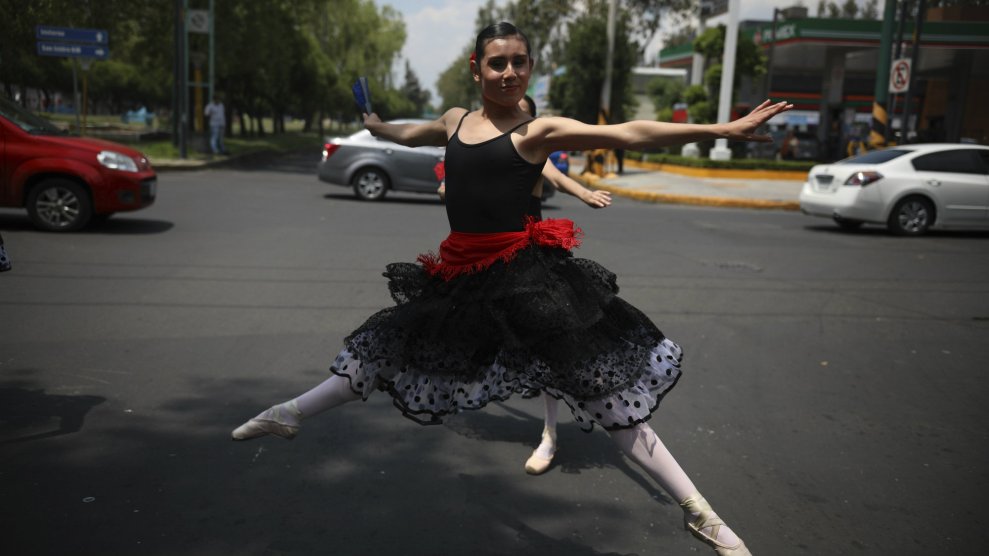
Members of Benjamin Franklin High School's Class of 2006 with their honorary degrees. John Parauka
The winds and flood of Hurricane Katrina bore down on Clint Smith III’s high school in August 2005, three days into his senior year. He and 76 other seniors at Benjamin Franklin High in New Orleans were among the 1.5 million people evacuated after Katrina. Those 77 high school seniors never returned. After the flooded school’s reopening that January, just over 100 members of the Class of 2006 stayed behind to complete their studies and receive their diplomas.
But the hearts of those driven away by Katrina remained at the high school, and this June, the school presented about two dozen of those former students with an honorary diploma and a 2005-06 yearbook, according to Christy Read, the school’s development head. Last week, Read mailed diplomas to another 20 former students, including Smith, an author and poet. She tells me she’s still searching for addresses for the rest.
The idea, discussed for years, took flight last fall at a reading Smith gave at the New Orleans Public Library. Pat Widhalm, Franklin’s current head of school, told me that he met one of Smith’s classmates there who backed the honorary diploma plan. The two discussed “the need to recognize and ‘make whole’” those Class of 2006 members whom Katrina drove away from home, he wrote in an email.
Last week, when Smith got his diploma in the mail, he posted a photo of it on Twitter. “This,” he wrote, “means the world.”
Fed up with the news? Read on! Recharge is a weekly newsletter full of stories that will energize your inner hellraiser. Sign up at the bottom of the story.
-
Libraries helping libraries. Hurricane Maria heavily damaged the vibrant library and de facto community center in the Puerto Rican seaside municipality of Loiza last September. Nearly 1,700 miles to the north in Lincoln, Massachusetts, another library is getting involved to help.
The Lincoln Public Library is raffling off tickets to Hamilton and hopes to raise $50,000 to help rebuild the damaged library and fix its roof. The Hispanic Federation, a foundation led by Luis A. Miranda Jr., the father of Hamilton’s creator, Lin-Manuel Miranda, has committed to match up to $20,000.
“The library, particularly in small towns like Loiza, are not only a place where people can go and get info online or get books,” Luis Miranda said. “They’re also community centers. They’re part of the fabric of the day-to-day life of the town.” (The Boston Globe)
- Saving teen girls. They’re called “human interceptors.” Posted at 20 border stops in Nepal, these women stop human traffickers from taking girls to India for forced prostitution.Working in partnership with the US-based nonprofit Love Justice International, the women look for signs that the girls may have been tricked out of their country by false promises of employment abroad.
“The first thing we say is: ‘Where are you from, where are you going?’” says Maya Gurung, one of the monitors. “We ask if their family know that they are traveling to India and when they say they do, we call them to check.” The monitors work with police to stop the girls from crossing and to reunite them with families, despite threats of violence from the traffickers.
The women average 90 interceptions a month. (The Guardian)
- Court says no to poison. Former Environmental Protection Agency chief Scott Pruitt wanted to keep chlorpyrifos, a neurotoxic pesticide, on American soil through at least 2022. Last Thursday, a federal court ordered the EPA to ban the chemical by October, citing decades of health reports documenting chlorpyrifos’ harm to children and brain development.
Chlorpyrifos has been used on a range of crops, including corn and tomatoes. The EPA had originally proposed banning the pesticide, but Pruitt changed course on the chemical last year. More than 50 farmers got sick from the toxin soon after.
Hawaii has already banned the chemical, and California may follow suit even before October. (Mother Jones)
- Speaking for himself. David James Savarese is a poet. He’s also the writer, producer, and subject of Deej, a Peabody-winning and Emmy-nominated documentary.
Savarese, who also goes by Deej or DJ, has a mission: He wants to foster more inclusion for people with autism—including himself. “Inclusion should not be a lottery,” he says, where a winner is a person with parents or mentors who have the understanding, drive, and wherewithal to establish proper support.
Non-speaking and abandoned by his mother at age three, Savarese was nurtured by adoptive parents who learned to understand his body language and his words—spoken through assistive technology that transforms typing into speech.
What should all people, autistic and neurotypical, do to advocate full inclusion? “Make sure all members of the community feel needed,” Savarese says. “We all need to feel loved and included.”
Thanks to reader Lauren Arant Menachekanian, an advocate for stories on autism that don’t just focus on the kindness of others, for this story suggestion. (Psychology Today)
Have a Recharge story of your own or an idea to make this column better? Fill out the form below or send me a note to me at recharge@motherjones.com. Have a great week ahead and make sure to sign up for the newsletter below.


















